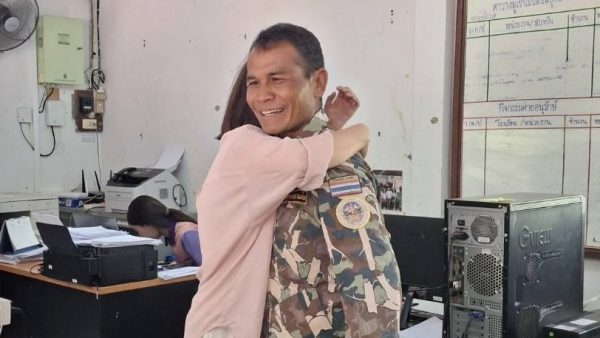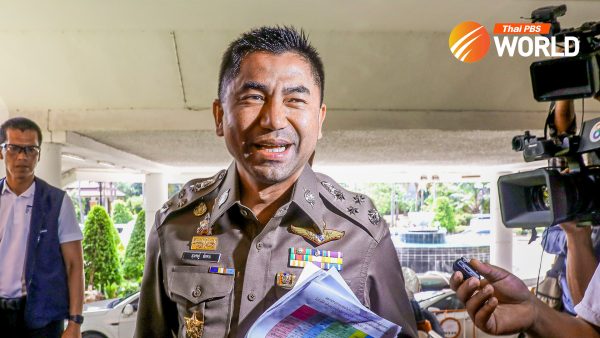Student movements blaze back, but for how long?

The dissolution of Future Forward Party has ignited a rash of campus rallies across the country. But will the unprecedented student activism be just a flash in the pan or will it evolve to become a new force that could threaten the Prayut government? Here, ThaiPBS World presents the first of a series of analyses that look at the making and the potential of the new campus activism.
In a country where the society is deeply divided politically, the true motive of recent student movements against the Prayut government has been queried, with many wondering if the youngsters were being manipulated by some political groups.
However, the most important question here is not what was behind these rallies, but how long they will last and whether they will be strong enough to pressure the government into giving them what they want.
One day after the Constitutional Court dissolved Future Forward Party on February 21, the Student Union of Thailand staged the first flash mob in the name of justice and democracy. Since then, universities and high-school students nationwide have been simultaneously staging rallies on their campuses, where the public assembly law doesn’t apply.
The court disbanded Future Forward Party for borrowing Bt191.2-million from its leader Thanathorn Juangroongruangkit.
Though the party dissolution triggered demonstrations nationwide against what was perceived as unfair treatment of the country’s third-largest political party, the demands later expanded to cover the rewriting of the current Constitution, resignation of Prime Minister Prayut Chan-o-cha and dissolution of the House among others.
In a forum held by Thai PBS last Thursday, representatives of nine universities where rallies were staged admitted that the party’s dissolution triggered the protests, but their activism is actually aiming for a higher cause.
“Yes, the dissolution of Future Forward was the last straw, but we’re not rallying only to show our indignation against the injustice suffered by the party – we want to see real political changes,” said Promsin Boonjan from Bangkok University, a private university where students have rallied on campus for the first time.
They said they want to take their activism to another level so it can maintain its momentum.
“We have lit the fire and now we must continue moving forward,” said Chulalongkorn University’s Sukriya Wannayu, adding that all activities will be peaceful.
“We don’t want to see any violence,” she said in response to concerns that the campus rallies may spin out of control and result in violence.
As campus protests continue to grow and win more public support – evidenced by the thousands of people who took part in the February 29 rally at Kasetsart University – the government has reportedly considered imposing the Internal Security Act to control the protests. The authority’s excuse is preventing the spread of Covid-19.
The now-defunct Future Forward became the third largest party in the March elections last year thanks to the support of young voters.
Many of the students voted for the now-defunct party, and they have come out to protest after learning that their votes do not count anymore, said Thitinan Pongsudhirak, director of the Institute for Science and International Security (ISIS), Chulalongkorn University.
“I think young people between the ages of 20 and 30 want to have their say because they don’t want to see Thailand going nowhere, as it has over the past 15 years. The young people today want brighter prospects and a way to move forward,” the academic told Thai PBS World.
Thitinan believes it is time for the government to see these rallies as a wake-up call and allow all stakeholders to have their voices heard.
Related stories:
How two coups shaped Gen-Z political beliefs
Popular party’s disbandment sparks information war
No military backing
In what has been seen as the largest protest by students since the October 1973 uprising, political analysts consider this movement an extraordinary phenomenon, but believe it will take more time to develop into a large-scale or prolonged protest.
“You will certainly see more flash mobs, but I don’t think the protesters will take to the streets in the near future,” said Titipol Phakdeewanich, dean of political science at Ubon Ratchathani University.
In order to escalate the protests or even prolong them, the students will need support from the military, he said
He pointed out that the context of the October 1973 student uprising and the 2013-2014 protest against the Yingluck government’s notorious amnesty bill were different from the recent movement.
“At that time [the 1973 and 2013 protests] the governments of the day did not have the military’s support, but this time around, it’s the other way around,” Titipol told Thai PBS World.
Moreover, he said, nowadays students have many other factors in their lives to consider before taking to the streets, such as their education and careers, adding that young people now prefer to express their opinions through social media and hashtags.
Also, Titipol added that the government has been wise in easing the feeling of suppression by giving some space on social media to the anti-government camp.
Plus, he said, the political situation is not that bad, because the economic condition of young people engaged in e-commerce or online business is still satisfactory.
“Hence, they are paying more attention to their earnings rather than coming out to join protests,” the academic said.
However, political analysts believe that government will have to do something if the student movement grows.
Yuthaporn Issarachai, a political scientist from Sukhothai Thammatirat Open University, believes that best compromise at this point will be for the government to rewrite the current charter.
“If the government answers that demand [to rewrite the charter] it can buy more time. That way, this government can run the country for at least one year before the rewriting of the charter is completed, the House is dissolved and a general election is held,” he reckoned.






